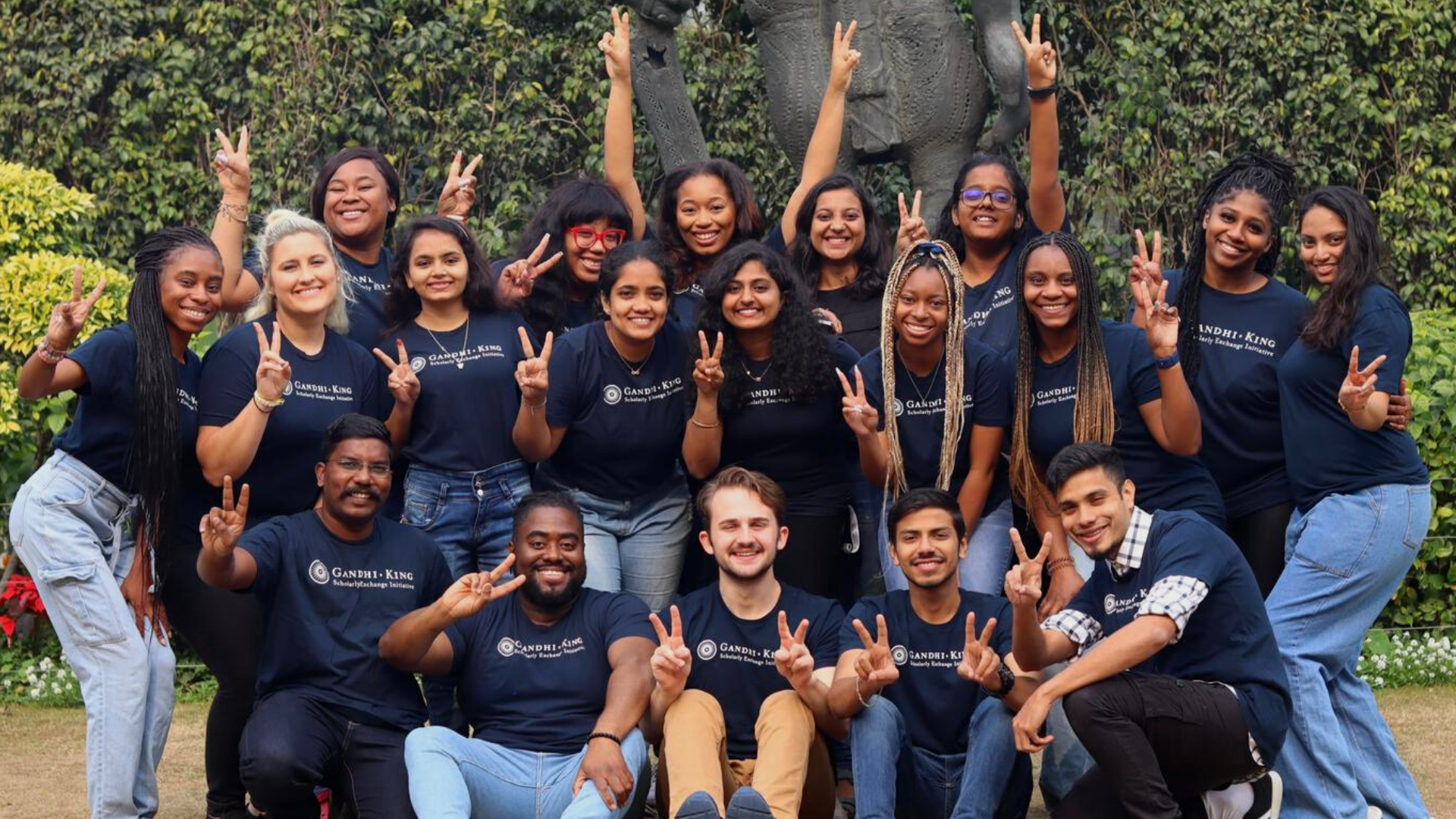The Gandhi-King Fellowship brings together 20 young civic leaders from India and the United States to lead by example.
February 2023

The young leaders who participated in the Gandhi-King Scholarly Exchange Initiative. (Photograph courtesy Demitrius Barksdale)
There’s much to learn from the legacies of Mahatma Gandhi and Dr. Martin Luther King, Jr. The two leaders came from different backgrounds, yet they had an immense impact on the 20th century’s monumental struggles for justice and equality. Aiming to inspire young leaders from the United States and India to work together to advance civil rights, social justice and inclusion, the U.S. Department of State launched the Gandhi-King Scholarly Exchange Initiative in June 2022.
The exchange program brings together 20 emerging young leaders from India and the United States to build leadership skills by exploring the histories and legacies of Gandhi and King.
The first exchange kicked off with a one-week virtual program and orientation followed by a two-week academic residency at Alabama A&M University and the University of Alabama. In January 2023, the participants reconvened in India for a two-week experiential learning program focused on civic movements inspired by Gandhi.
The participants visited sites, communities and organizations that built their academic curriculum centered around peace, nonviolence and conflict resolution.
The group engaged with speakers, visited historical sites and museums, and participated in leadership skills training and art applications. They met and interacted with students at Gujarat Vidyapith University, founded by Gandhi. The visit gave them an opportunity to understand more about Gandhian values directly from students.
Better together
Aarthy Rajaram, a psychologist from Tamil Nadu, calls this exchange an “eye-opening experience.” While exploring the themes of peace, nonviolence and conflict resolution, Rajaram says, the exchange “promoted a more positive and cooperative relationship between people from both countries, leading to greater understanding, collaboration and mutual benefit.”
“My greatest takeaway from this exchange has been that although we are over 8,000 miles from each other, we aren’t that different,” says Demitrius Barksdale, a Ph.D. student at The University of Alabama. “With every cultural difference, I’ve noticed many cultural similarities. African Americans are very similar to our Indian brothers and sisters.”
Bolstering what the participants already knew about the diverse perspectives and Gandhi-King values, Barksdale says, “Better Together” was the mantra for the cohort. “I once heard, ‘If you want to go fast, go alone, but if you want to go far, go together,’ ” he says.
Mumbai-based Roydon Jonathan Dsa is greatly inspired by Gandhi and King’s leadership styles. “Their ideas of love and forgiveness shaped our interactions with each other. Learning from Gandhi and King, we self-reflected, and thought beyond ourselves.”
Understanding diplomacy
The exchange initiative brought greater insight into foreign relations and engagement. “Prior to this experience, the idea of engaging beyond borders was daunting, but now, I’m not as angsty as before, because I’ve been exposed to so much more,” says Barksdale. “Exposure is key, because many of the questions and answers one might possess are addressed through the experiences that exposure brings.”
For Roydon, “this engagement of leaders from the two countries demonstrated the beauty and benefits of collaborative efforts and opportunities to learn and support one another, thereby improving both nations and serving as a beacon of collective support to other nations.”
Positive future
This initiative has opened up new prospects for future careers, according to the participants. “As a doctoral student,” says Barksdale, “I aspire to advocate for holistic health practices and resources for global communities.” For Rajaram, the cultural exchange provided a valuable opportunity to broaden her perspectives and understanding of other cultures. “The biggest takeaway,” she says, “was the opportunity to learn from others, exchange ideas, and gain a deeper appreciation for diversity.”
COMMENTS